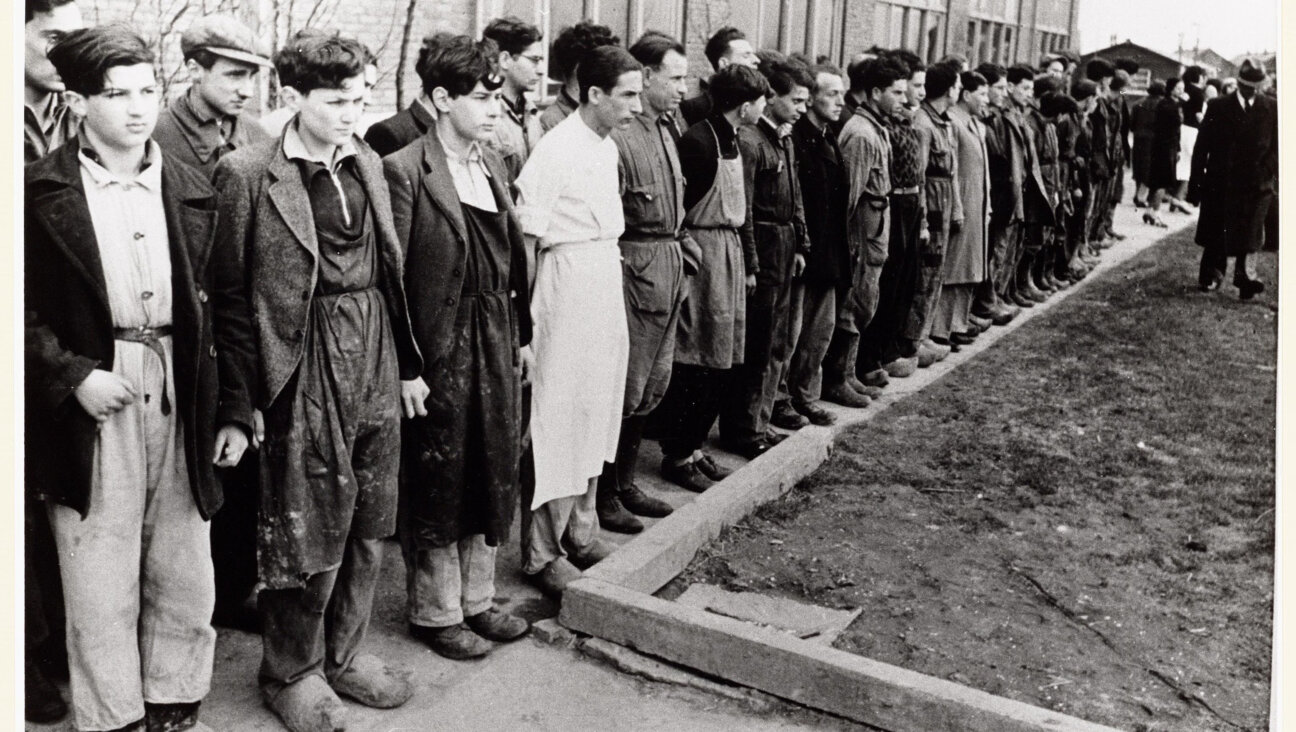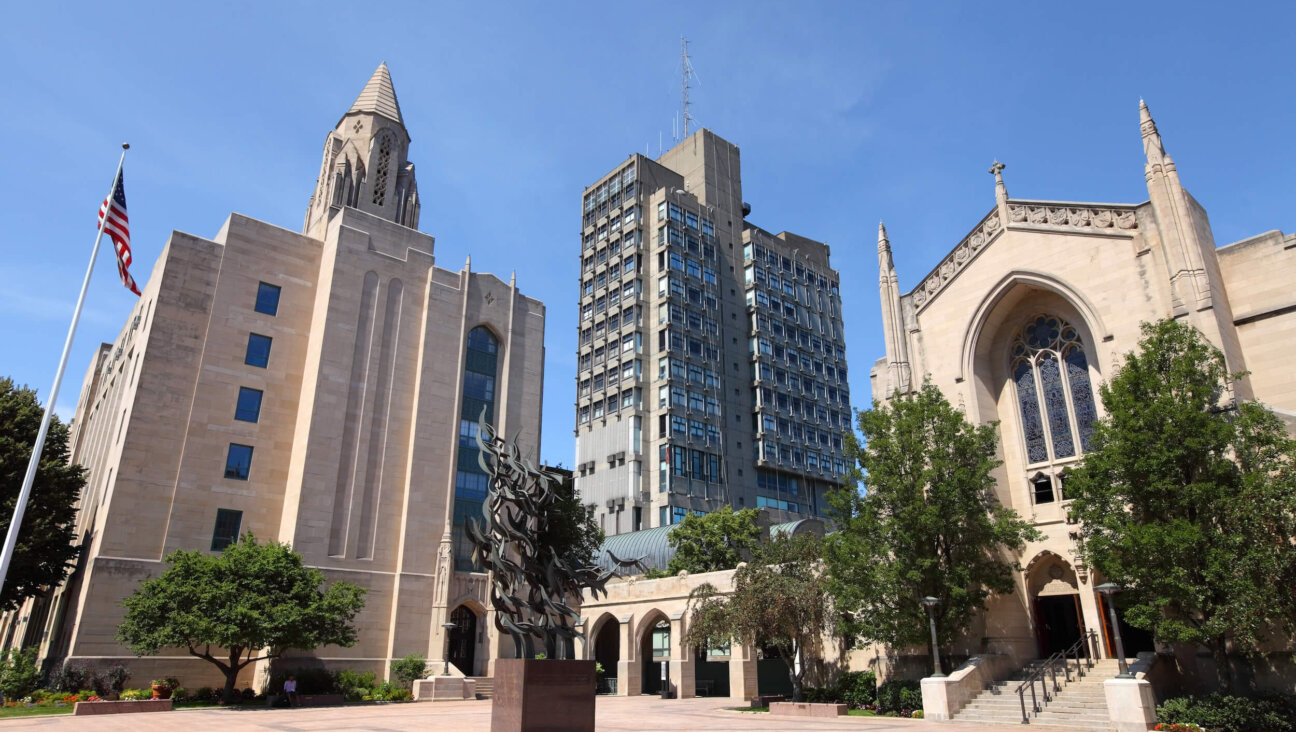WATCH: What We Can All Learn From the Story of Hanna’s Shabbat Dress

Graphic by Angelie Zaslavsky
Suddenly we all are holding hands and swinging
Doubling our smiles and tripling love and blessing
Adding up to one so helping keeps us free
That is what we learn and teach the world to be
These words are from Suddenly Perfectly, the first English translation of the Hebrew song Tov Lanu Pitom, by Rafi ben Moshe. The song appears in the musical version of the iconic Israeli book Simlat HaShabbat Shel Hannale (Hanna’s Sabbath Dress) by Itzhak Schweiger Dmi’el. We have translated it for an American audience for our original musical, Hanna’s Moonlit Dress, which we are presenting in just two weeks at the 14th Street Y.
These words are a little hard to absorb right now. As the voices of talented young actors fill the halls of our preschool, smiles on their faces and enthusiasm in their dance-steps, I find myself wondering: is this a message parents want to hear right now? Will they feel moved to get up and dance with their children? Are they ready to smile? Will they even come?
Our team at LABA: A Laboratory for Jewish Culture at the 14th Street Y has been working since fall 2011 to bring these words and their story onto the stage and into the hearts of the Jewish community. Now, two weeks before we open a 3 week run of our play, it is almost ironic that we are staging a show about idealism, unity, good deeds and self-sacrifice, for an audience largely heart-broken by recent events that have called these values into question.
I originally fell in love with this book because of its vision of optimism, hope, and promise. The story seems deceptively simple: a young girl – Hanna – lives alone with her mother. Her mother has stayed up late at night, laboring over the creation of a beautiful, white Sabbath dress for her daughter. Soon, Hanna finds herself in a predicament: a stranger, carrying a large sack of coal, is in need of her help. But if she helps him, her new, white dress may be ruined. Of course, Hanna makes the right choice, and magic ensues, leading us to this cheerful song, a talking moon, and a lesson in how easy it can be to bring warmth to others.
You may wonder what a coal man was doing in Israel. Itzhak Schweiger Dmi’el wrote Simlat HaShabbat Shel Hannale in 1930s British Mandate Palestine, and published the story in Davar, the influential workers’ newspaper. The coal man – along with the absence of Hanna’s father – is symbolic of the suffering, isolation, and incompleteness of the Jewish people at this moment in time. Pre-state Israel was a time of dreaming. Most people had very little and were struggling just to survive. Dmi’el wrote this story for a community of big dreamers – people who believed that with every seed planted, they were creating a better future for the Jewish people. This was the idealistic, pioneering vision of Israel; a vision of pure hope and promise. Fast forward to today. The idea of helping a stranger struggling with his workload becomes equally relevant. How can we help the coal men in our society – both in America and in Israel? Where is the little girl in a white dress, willing to get dirty to do the right thing? When will the moon be ready to give us some magic to help ease the way?
I don’t have all the answers right now, but I do know this: I need a positive way to talk to my son about the power of doing good in the world. He needs to see examples of the joy of community, and of love for each other. I need to sing, dance and smile with my child. I need a little joy in my life too, and a reminder of the power of idealism. We all do.
If you are ready to emerge from your cloud of disbelief and anxiety, open the curtain with us in the coming weeks. Come be transported to another world and time. The clouds may still be there when you leave the theater, but I promise: you’ll leave with a little more light in your heart.
Adding up to one so helping keeps us free
That is what we learn and teach the world to be
Hanna and the Moonlit Dress plays December 2-18 at the Theater at the 14th Street Y, at 344 East 14th Street. For tickets, please visit .

















